On the first day of the full-scale invasion, Ruslan Sutkovyi from Zaporizhzhia decided to defend his country. Previously, he had worked at Zaporizhstal for 13 years. After leaving the service for personal reasons, he returned to his job as an operator of continuous pickling line No. 4. Currently, he plans to obtain higher education, majoring in metallurgy, at Metinvest Polytechnic.
More than 1,000 people were mobilised from Zaporizhstal and 206 have returned to work. In total, Metinvest Group employs 870 veterans at its various enterprises, of whom 32 have been retrained and acquired new professional qualifications.
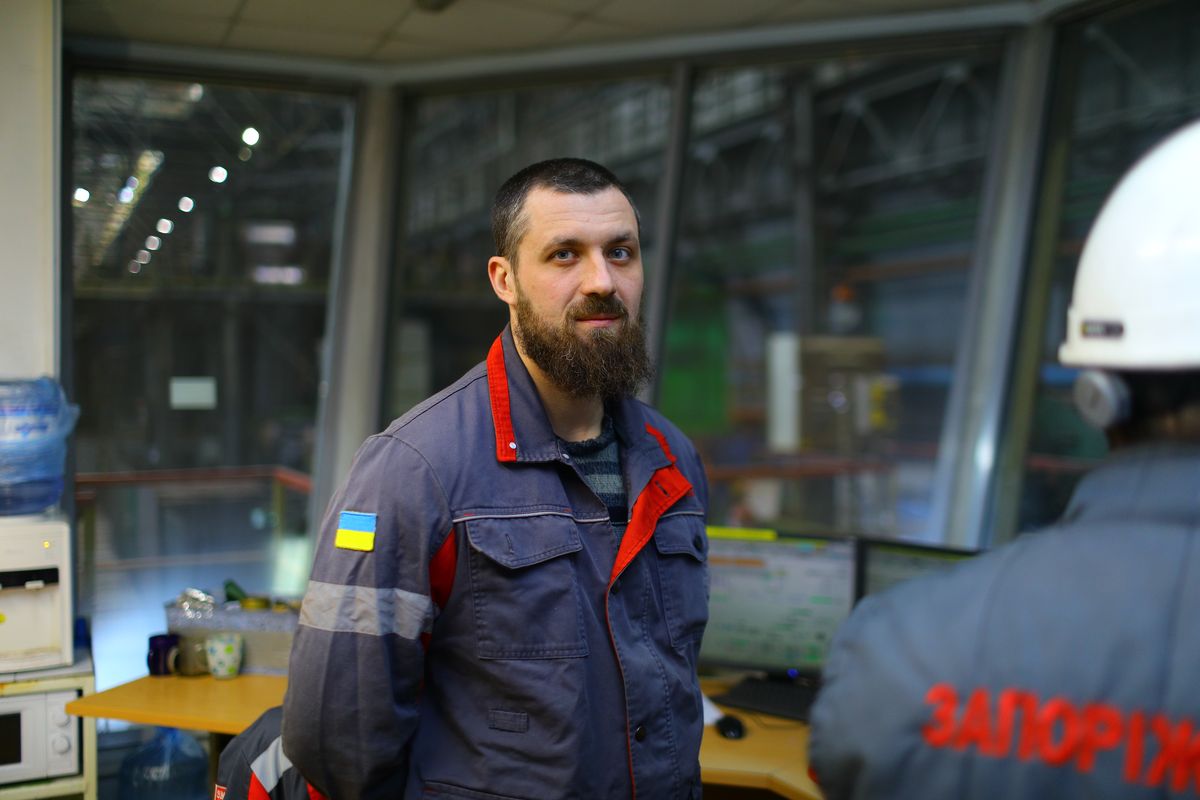
A metallurgist became a volunteer
Ruslan’s entire working life has been tied to Zaporizhstal. He came to work at the plant as a student because, as he says, “I wanted to be independent”. He started as a packaging assembler. When the plant launched the modern BTA-4 production line in the cold-rolling mill (the only one in Ukraine built according to European environmental standards), Ruslan became the control room operator.
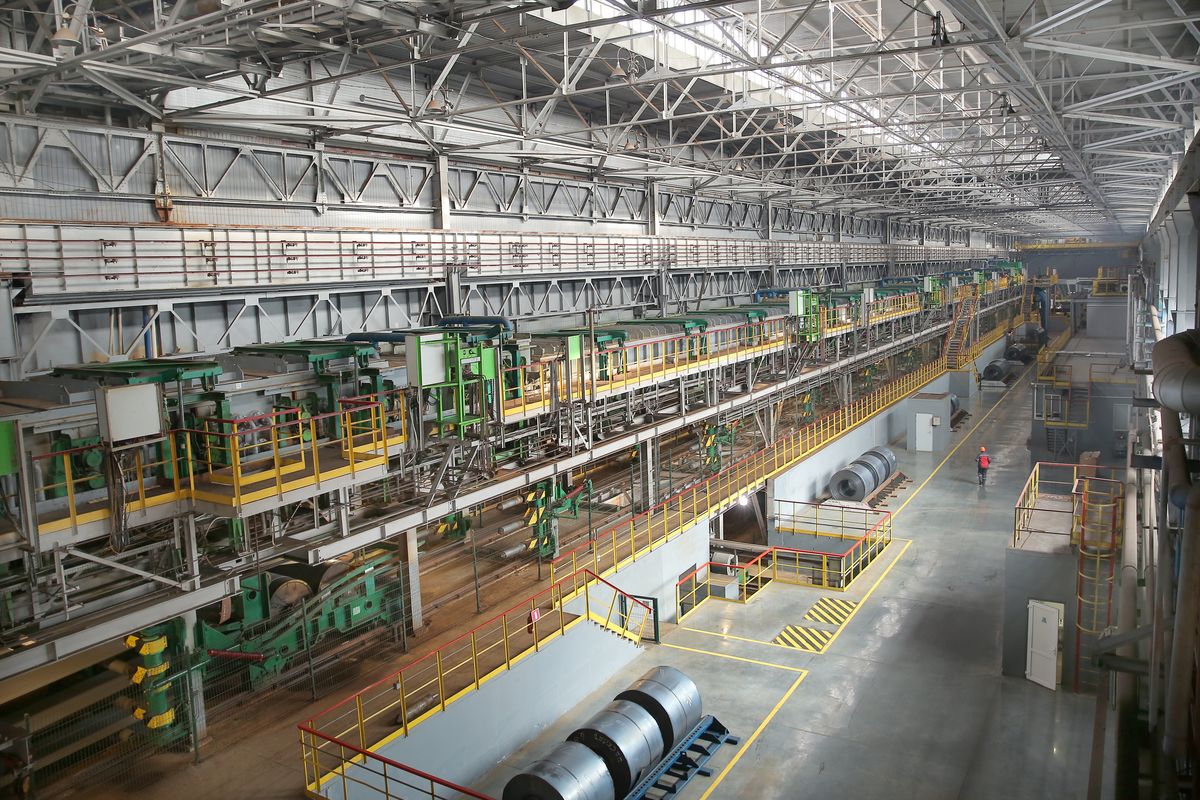
Zaporizhstal
A full-cycle steelmaking enterprise, it is the third largest producer of steel products in Ukraine. Blast furnace No. 1 produced the first pig iron at the plant on 16 November 1933 and this day is marked as the plant’s anniversary. The enterprise produces hot-rolled and cold-rolled plates with a thickness of 0.5-7.0 mm from carbon, low-alloy, alloy and stainless steels. Around 70% of the plant’s products are exported to more than 40 countries. Before the full-scale invasion, the plant produced 4.3 million tonnes of iron, 4.1 million tonnes of steel and 3.5 million tonnes of rolled products annually.
On 24 February 2022, Ruslan had to start his shift at night. It was also his daughter’s birthday. That’s why he remembers it very well.
The veteran said: “I wished my daughter a happy birthday. Then I started to realise that the work would end soon. The Russian aggression was moving ever closer to Zaporizhzhia. I could not just sit and wait.”
At the plant, Ruslan discovered that a territorial defence unit was being formed in the city and he joined it. It was the 110th Independent Territorial Defence Brigade of the Armed Forces of Ukraine in the Zaporizhzhia region. He served there until May. However, Ruslan wanted to join the Azov unit, as many of his friends were serving there.
The veteran recalls: “I went to the military enlistment office and was told to go through the commission. I completed everything and hoped that that was all and in a few days I would be going somewhere. But I received a call-up notice and was told to wait. I had to keep working and wait for the call. Time passed until the beginning of 2023. Then they called me and told me to pack my belongings because they would take me away the next day.”
Ruslan’s family found it difficult to accept his decision to go to the war. However, they knew there was no point in arguing: the man rarely changed his mind.
The volunteer was first enrolled in one of the training facilities where people were prepared for the rifleman military speciality (military occupation code: 100). This is mandatory for all those who have not undergone prior military service.
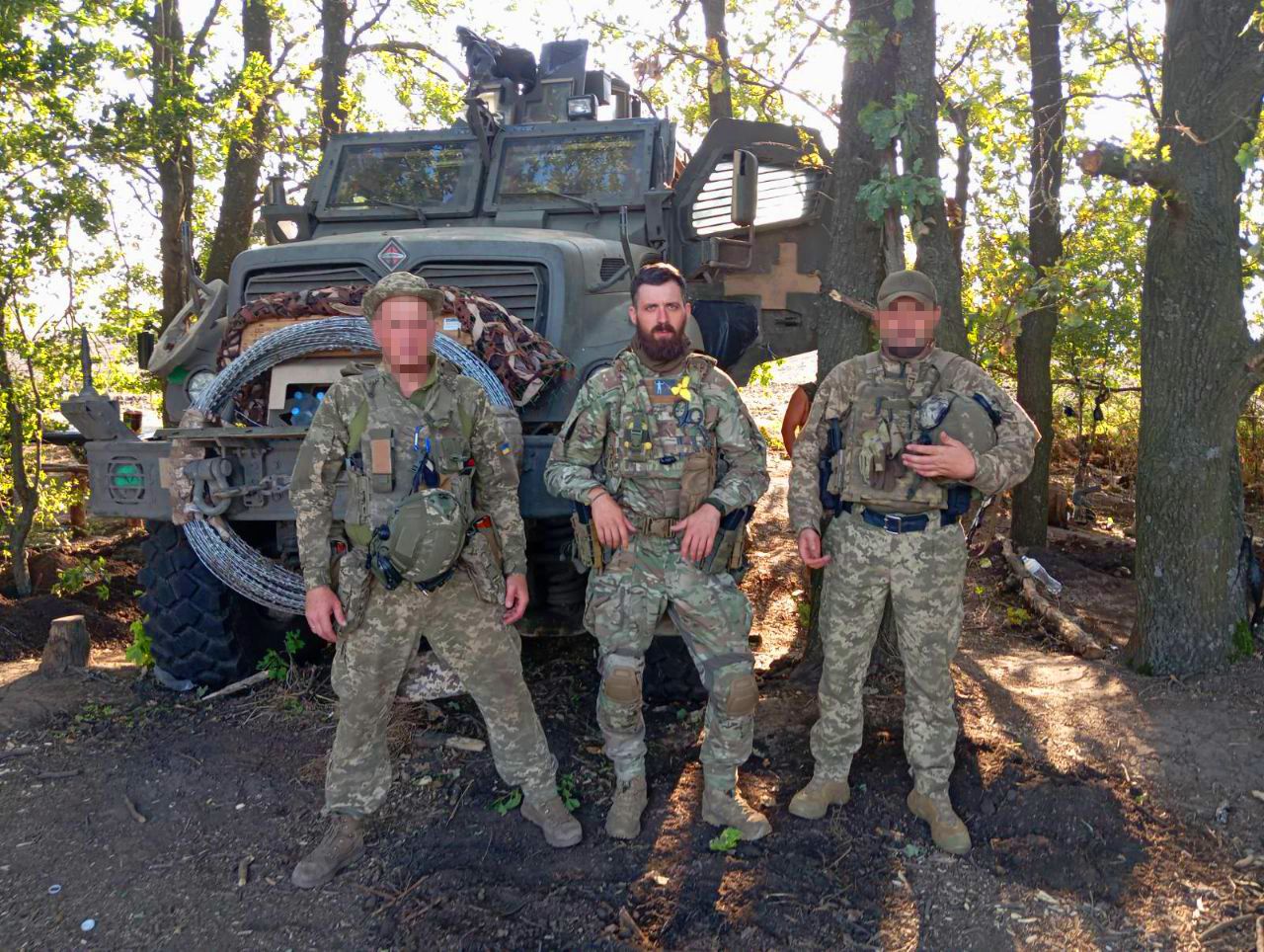
“We were supposed to train for around one month, but after about three weeks I was selected for reconnaissance work, and I left. There, we trained for another month and a half. The training included an additional military speciality: machine gunner, grenadier, sniper or sapper.”
Ruslan chose to become a grenadier.
The volunteer said: “We were even trained to skydive. It looked like some kind of large-scale offensive was being prepared.”
First assault
After completing his training, Ruslan joined the 71st Jaeger Brigade as part of the Air Assault Forces. At first, he served in Nikopol, Dnipro region, where he had the task of tracking and neutralising Russian sabotage groups.
In September 2023, the brigade was redeployed near Zaporizhzhia, where the soldiers participated in the liberation of occupied territories as part of the Tavria operational and strategic grouping of troops. Two months later, they were relocated near Avdiivka in the Donetsk region.
Most of all, the soldier remembers his first assault. It was the battle for Verbove village in the Zaporizhzhia region.
The fighter said: “It was very difficult. They prepare you for this, but it’s still very difficult, both mentally and physically. We were warned: after the first shot, the first contact, the whole plan will fall apart. The junior leaders will be decisive; you will make decisions on the spot. And that is exactly what happened. I even managed to take a selfie before and after the assault. I sent it to my girlfriend when I returned. She said it was two different people.”
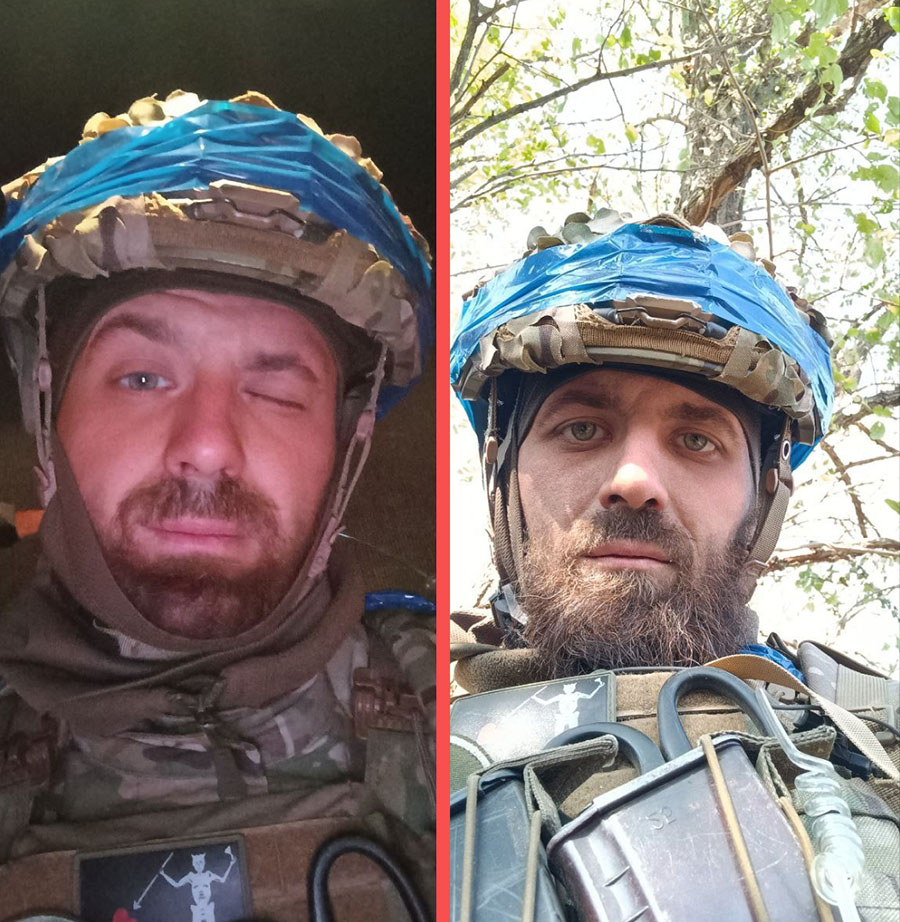
The veteran reflected: “I have concluded that preparation is, of course, important. But no matter how well prepared and trained you are, if it happens, it will happen.”
Sutkovyi said: “In war, the unpredictability is total. You can be off the battlefield, resting and drinking tea, and, in a second, you are gone.”
Returning to civilian life
The sense of danger does not leave a soldier throughout their service and remains with them after they return to civilian life. This happened to Ruslan as well: having left the service for personal reasons a year after his mobilisation, he spent a long time adapting to life on the home front.
Civilian life seemed unusual and weird after the constant need to stay collected and alert.
Ruslan described his condition: “You must always be combat ready. They prepare you to go on a mission at any time, to neutralise a sabotage group or something else. After that, in civilian life, you start listening to everything. A car passes by on the street, or you hear a sharp sound, and you start to tense up. At first, peaceful life somehow did not fit in my head.”
The veteran’s adaptation process took about a month and a half. Although, he says, he hasn’t let go of it completely yet. But his close environment and colleagues, with whom he remained in touch during his service, help him.
The veteran said: “Most of my colleagues stayed in touch when I was in the armed forces. After returning from service, I didn’t start working right away, I had to pass a commission and take some time off. They would visit me, talk to me, invite me for fishing or to go somewhere, sit and walk. Such simple things help a lot.”
Ruslan advises his fellow soldiers returning from the army to civilian life not to withdraw into themselves, not to push away their family and friends, and not to stay alone – communication helps to adapt.
Know your rights
The defence of Ukraine was not free from combat injuries. Ruslan had shrapnel wounds to his legs from a grenade explosion. He has a damaged nerve, which makes him unable to run fast or sit for a long time. He intends to undergo rehabilitation abroad in the summer. His status as a combatant entitles him to an additional 14 days of leave at work. He was also able to apply for some benefits provided for veterans. However, he says there is a lack of information regarding this.
The veteran said: “I only applied for a discount on utilities. I have not used anything else. Although there are benefits that I would like to use, I have not found them in Zaporizhzhia. For example, dental prosthetics. In the city, there are no clinics that provide such services to veterans for free. Moreover, you still need to seek out information about the benefits available. I would like to see some kind of service that makes this easier for veterans to understand; where you can type in a search for services for combatants in your city and find out what is available and where.”
Ruslan advises both veterans and military personnel who are still serving to learn their rights and ensure they are upheld. For example, a wounded soldier is entitled to compensation for treatment costs.
“A soldier must know his rights, what he can demand from his command, and do it.”
The defender said: “In this respect, I was very lucky with my commander. He is a very good person. If it wasn’t for him, I doubt I would be giving this interview now.”
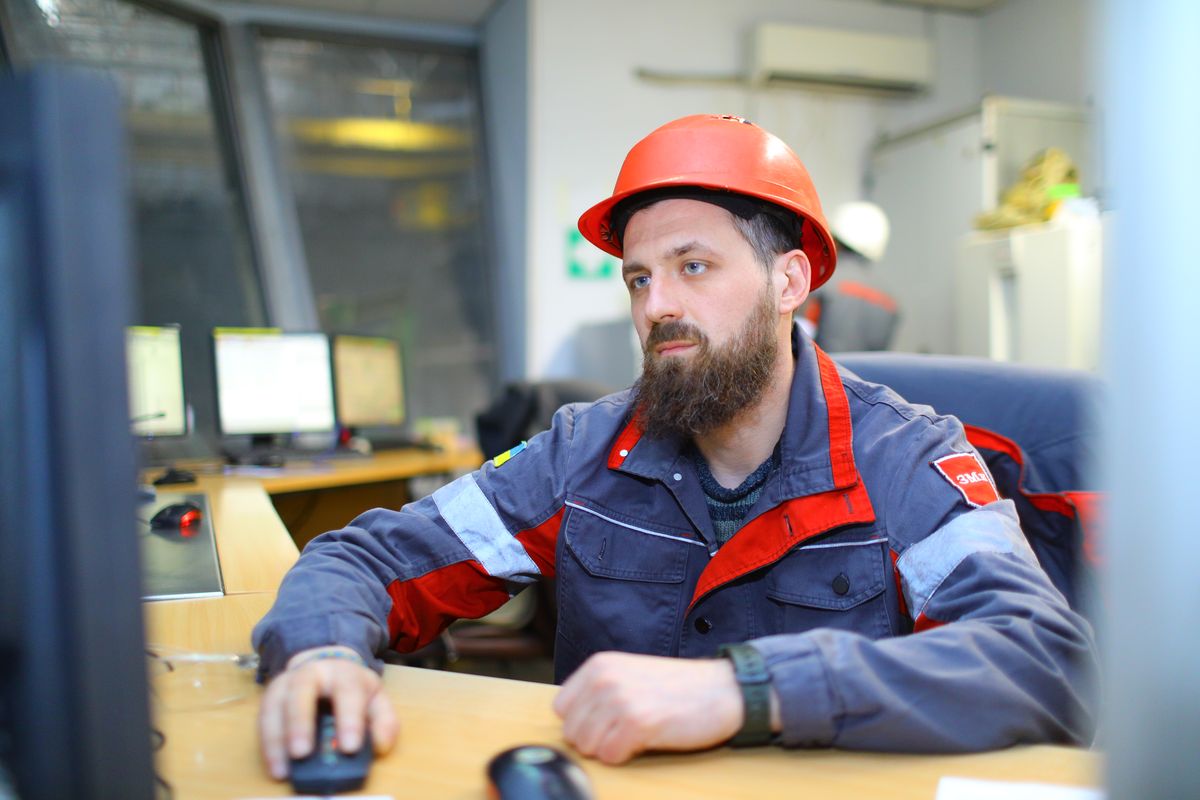
New profession
As for his profession, Ruslan now works as a laser welding machine operator. This job does not require physical activity, so it is suitable for a veteran with a service-connected disability.
Ruslan wants to develop and study further, so he enrolled in Metinvest Polytechnic to obtain a higher education, which he did not complete when he started working at the plant 13 years ago.
The veteran said: “I applied to study at this university earlier. Right after I left the service, I received a call from the university offering me the opportunity to study and asking me to choose a speciality. They reminded me that for employees of Zaporizhstal and other Metinvest enterprises, education is funded by the Group. Moreover, I don’t need to take an entrance exam because I have the status of a combatant.”
Metinvest Polytechnic
The first private mining and metallurgical university in Ukraine, Metinvest Polytechnic was established by Metinvest Group in 2020. The first students were enrolled in 2022. The plan was to open a cutting-edge campus for the university in Mariupol in September 2022. However, the war and Russian occupation of the city prevented this from happening. In 2022, the first 350 students began online studies in modern engineering and technical specialities. The first graduates have now received their diplomas from Metinvest Polytechnic. Currently, students are studying remotely under the dual education system, combining theory and practice at the enterprises of Metinvest Group in Zaporizhzhia, Kryvyi Rih and Kamianske. The top students can attend internships at the Group’s enterprises and abroad.
Attentive employee
Higher education provides additional opportunities for career growth. Yevhen Ukhan, Ruslan’s direct manager, says that he has good career prospects. He describes the veteran as an intelligent, attentive and responsible person.
The manager said: “I have been working with him since 2016, and I know him quite well. He has a job where if he makes a mistake, it will result in unscheduled downtime of the unit, which would be very bad for both the plant and the shop. This position requires a very attentive person, and he is that person. He has been doing an excellent job over the years thanks to this virtue. I also appreciate him for his honesty. If he doesn’t like something, he says so directly.”
Throughout the year of Ruslan’s service, his colleagues kept in touch with him, could consult with him on work issues, and he always helped.
The manager recalled: “We have a work chat on the social network. I did not remove him from there so that he stayed updated, remained involved in the process, and kept in touch. If we needed to resolve a work issue, he could give advice. I remember that I wanted Ruslan to train for two shifts after his return to refresh his knowledge of the process. But he came and said: ‘I don’t need any training.’ After an hour, he was already fully engaged in the work.”
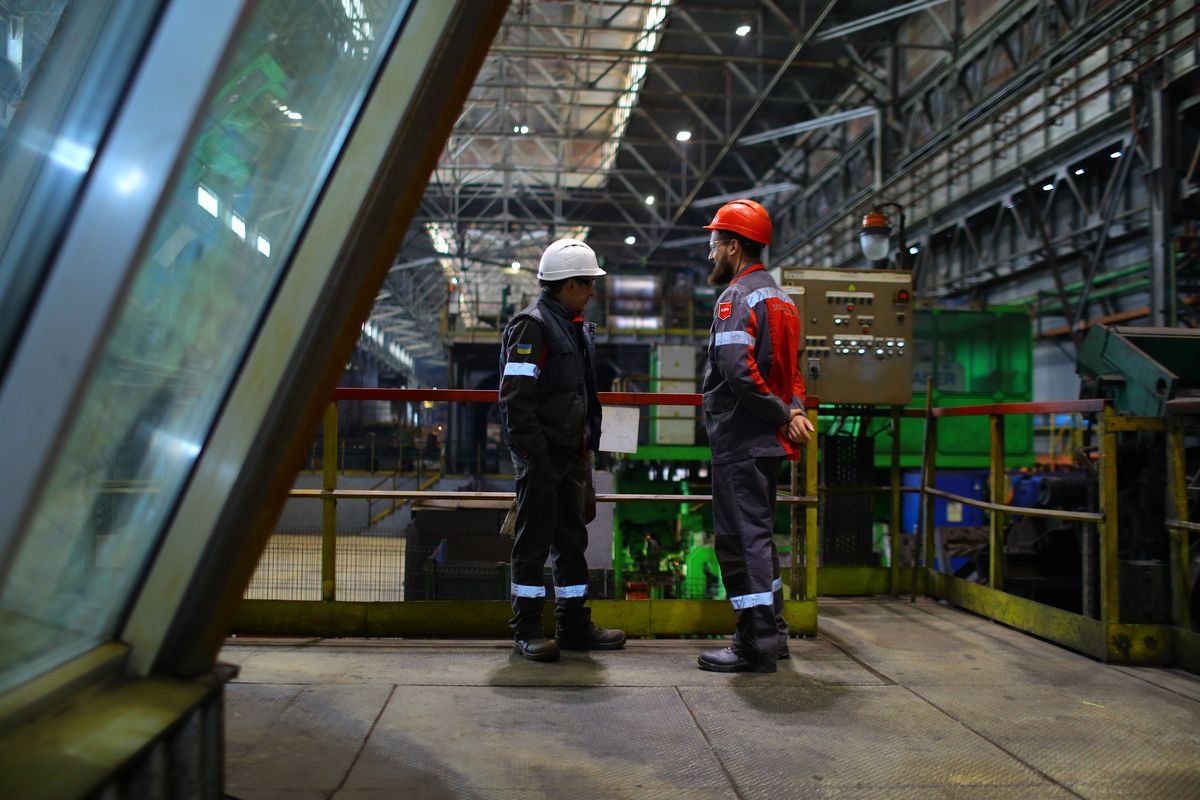
Maksym Ped, Human Resources Director of the enterprise, said that veterans are highly desirable employees for the plant. He believes that their strengths include the ability to quickly and accurately assess situations, make informed decisions, focus on team results and demonstrate reliability.
Maksym Ped said: “That is why we see our task as establishing an inclusive ecosystem that will allow veterans to quickly reintegrate into normal life and work. We are carefully studying the experience of the US and Israel in this area, adopting the world’s leading practices in working with war veterans and rethinking this experience in the realities of Ukraine.”
The enterprise is working on programmes for the return, retention and adaptation of veterans, implementing workplace mentoring programmes and developing veteran communities. It also offers consultations and information support, provides additional medical examinations and implements psycho-emotional support practices.
Maksym Ped said: “We believe that it is society’s responsibility to learn to understand veterans, and not vice versa.”
The manager said: “We build our communication and interaction with veterans on the basis of care and a desire to support them, but at the same time, all this should be unobtrusive care, and only if the veteran needs it. When communicating with veteran employees of the enterprise, we definitely know that they are not looking for pity or excessive attention, but for respect and honesty.”
